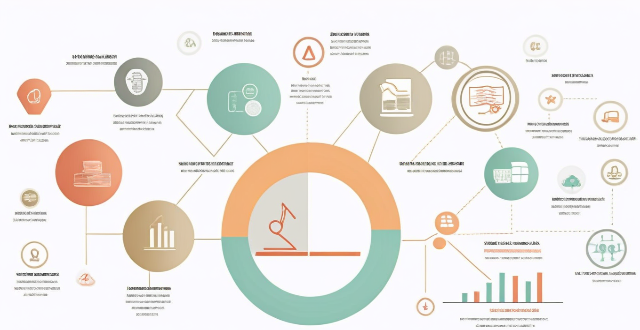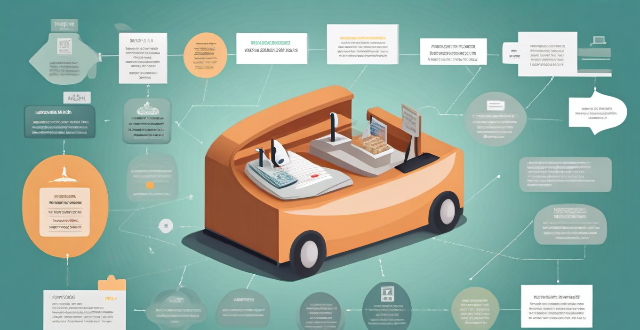Credit Insurance

How does credit history influence insurance rates ?
The text discusses how credit history influences insurance rates. Insurers use credit history as a predictor of future claims and risk, with studies showing that individuals with poor credit histories are more likely to file claims and cost insurers more money than those with good credit histories. Several factors can affect insurance rates based on credit history, including payment history, amount owed, length of credit history, and types of credit used. Maintaining a strong credit history can potentially save money on insurance premiums and demonstrate financial responsibility to insurers.

How can I ensure that I'm getting the best price for my insurance ?
To ensure the best price for your insurance, shop around using comparison websites and direct insurers, consider brokers, increase your excess, pay annually instead of monthly, improve security measures, build a no-claims bonus, review coverage regularly, take advantage of discounts, maintain good credit history, avoid small claims, and renew early. These steps can help you save money on insurance while still ensuring adequate coverage.

In what ways can bad credit management lead to financial difficulties for a company ?
Poor credit management can lead to cash flow issues, increased costs, damage to supplier relationships, negative impact on business reputation, and legal implications. To mitigate these risks, companies should establish clear credit policies, conduct regular credit checks, maintain open communication with customers, leverage technology for payment tracking, and consider third-party services or credit insurance.

Can I get a mortgage with bad credit ?
Getting a mortgage with bad credit is possible but may be more challenging and come with less favorable loan terms. To increase your chances, check your credit score, work on improving it, shop around for lenders, consider alternative options like FHA or VA loans, and be prepared to make a larger down payment.

What is private mortgage insurance (PMI) and do I need it ?
Private Mortgage Insurance (PMI) is a type of insurance that protects the lender, not the borrower, in case of default on a mortgage loan. It is typically required when a homebuyer makes a down payment of less than 20% of the home's purchase price. Whether you need PMI depends on factors such as your down payment, credit score, loan-to-value ratio, and type of loan. Consider the cost of PMI and alternatives before deciding to obtain it.

What steps can I take to lower my insurance premiums over time ?
The text provides a comprehensive guide on how to reduce insurance premiums over time. It emphasizes the importance of maintaining a good driving record, improving credit scores, bundling policies with one insurer, increasing deductibles, staying healthy, regularly reviewing and updating coverage, taking advantage of available discounts, paying premiums annually, and staying loyal to an insurance company for potential long-term customer discounts. The advice is structured in a clear and actionable manner, encouraging readers to analyze their needs and shop around to ensure they are getting the best rates possible.

How does credit management work in a bank ?
Credit management is a crucial function of banks that involves assessing and managing the risks associated with lending money to individuals and businesses. The process includes evaluating borrowers' creditworthiness, using credit scoring models to determine risk, making loan decisions, servicing and monitoring loans, and managing credit risk through diversification and risk management strategies.

Is it worth buying travel insurance for domestic trips ?
The article discusses the importance of travel insurance for domestic trips. It suggests that while it may not always be necessary, it can provide an additional layer of protection and peace of mind, especially for those embarking on adventurous or expensive trips. The article provides a list of key points to consider when deciding whether to purchase travel insurance, including risk assessment, coverage details, cost analysis, personal circumstances, and peace of mind. It also lists the benefits of travel insurance for domestic trips, such as medical coverage, trip interruption/cancellation, baggage loss/theft, emergency evacuation, and accidental death and dismemberment. The article concludes by suggesting that the decision to buy travel insurance depends on various factors such as the nature of the journey, existing coverage, and personal preferences.

What is the process of buying insurance online like ?
The text provides a detailed guide on how to buy insurance online. It outlines the process in eight steps: researching and identifying needs, selecting an insurance provider, getting a quote, reviewing policy details, completing documentation, making payment and receiving policy documents, confirmation and follow-up, and activating coverage. The benefits of buying insurance online include convenience, comparison, transparency, and speed. However, precautions such as ensuring security and legitimacy of the website, and fully understanding the policy terms should be taken.

Can I buy travel insurance for someone else, like my parents or children ?
The article discusses the possibility of buying travel insurance for someone else, such as family members. It highlights the importance of understanding the specific requirements and restrictions associated with this process. The text provides a step-by-step guide on how to purchase travel insurance for someone else, emphasizing the need to choose the right policy that fits the insured person's needs and provides adequate coverage for their trip.

How do banks manage credit risk ?
Banks manage credit risk through a variety of methods and strategies to ensure the stability of their operations and protect against potential losses. They identify and assess credit risk using credit scoring models, financial analysis, and credit reports. They mitigate credit risk through diversification, collateral and guarantees, and credit derivatives. Banks monitor and control credit risk by ongoing monitoring, loan loss reserves, and regulatory compliance. In case of credit risk events, banks recover through workout agreements, legal recourse, and communication with stakeholders. By employing these strategies, banks aim to minimize credit risk while still providing essential lending services to support economic growth and individual prosperity.

How much life insurance do I need ?
Determining how much life insurance you need is a complex process that depends on your financial situation, income replacement needs, debts and final expenses, current coverage, and consultation with a professional. Assessing your financial needs, calculating income replacement needs, considering debts and final expenses, evaluating current coverage, and consulting with a professional are all important steps to ensure you have the right amount of life insurance coverage for your loved ones.

What is the role of credit rating agencies in bond investing ?
Credit rating agencies are pivotal in bond investing, offering independent assessments of issuers' creditworthiness. They conduct thorough analyses and assign ratings reflecting the likelihood of default, aiding investors in risk evaluation and portfolio diversification. These ratings contribute to market transparency, efficient price discovery, and enhanced liquidity. They also play a role in regulatory compliance for institutional investors and capital markets regulation. However, concerns about conflicts of interest and rating accuracy during crises highlight the need for improved methodologies and increased accountability.

What role does credit scoring play in credit management ?
This article discusses the importance of credit scoring in credit management. It explains what credit scoring is, its role in risk assessment, fairness and objectivity, efficiency and accuracy, customization, and compliance with regulations. The article emphasizes that credit scoring is a crucial tool for lenders to evaluate borrowers' creditworthiness and make informed decisions about approving loans.

How do interest rates affect credit management strategies ?
Interest rates significantly influence credit management strategies by affecting the cost of borrowing, returns on savings, and serving as a tool for monetary policy. To mitigate their impact, individuals and businesses can diversify their portfolios, consider short-term loans, refinance debt, and maintain good credit history.

How can companies use credit management to improve cash flow ?
Credit management is crucial for companies extending credit to customers. Strategies include implementing a credit policy, conducting credit checks, monitoring receivables, offering multiple payment options, incentivizing timely payments, using automated tools, and periodically reviewing and adjusting processes. These steps can help reduce bad debts and improve cash flow.

What is the difference between term life insurance and whole life insurance ?
Difference between term life insurance and whole life insurance: - Term life insurance is temporary coverage, no cash value, renewable, and affordable. - Whole life insurance is permanent coverage, accumulates cash value, has level premiums, and is more expensive.

Can you explain the process of credit analysis in credit management ?
Credit analysis is a crucial process in credit management that involves evaluating the creditworthiness of a borrower or a counterparty. The process includes gathering information on personal data, financial data, and credit history, analyzing this information through credit score analysis, financial statement analysis, and industry analysis, and determining creditworthiness based on capacity to repay, collateral, and covenant analysis. Finally, a decision is made on whether to extend credit to the borrower or not.

What is credit management ?
Credit management is the process of managing and controlling the use of credit by individuals or businesses. It involves evaluating borrowers' creditworthiness, determining the amount of credit to extend, monitoring loan repayment, and taking action for late payments. Key components include credit analysis, evaluation, loan monitoring, collections management, risk management, and customer relationship management. Effective credit management benefits include reduced default risk, improved cash flow, increased customer satisfaction, and enhanced reputation.

How often do credit card rewards expire ?
This text provides an in-depth analysis of credit card rewards expiry. It explains the various types of rewards and their typical expiration timelines, including cashback rewards, travel points, and other benefits. The article also offers tips on how to maximize the value of these rewards before they expire, such as staying organized, planning ahead, redeeming early, exploring redemption options, and negotiating with your credit card issuer if necessary. Overall, it emphasizes the importance of understanding the terms and conditions of credit card rewards to make the most of them.

How can I improve my credit score and maintain good credit history ?
Maintaining a good credit score is vital for securing loans, mortgages, and even some jobs. To improve your credit score and maintain good credit history, consider the following tips: 1. Pay bills on time to avoid late payments that can significantly impact your credit score. 2. Avoid defaulting on loans by contacting the lender to discuss options if you're struggling to make payments. 3. Keep balances low and increase credit limits to lower your utilization rate. 4. Keep old accounts open and space out applications for new credit to maintain a healthy length of credit history. 5. Diversify your types of accounts to show that you can handle different types of credit responsibly. 6. Limit hard inquiries and apply for credit only when necessary. 7. Check your credit report regularly to ensure there are no errors or fraudulent activity dragging down your score. 8. Use credit wisely and monitor your credit score to keep an eye on progress. 9. Educate yourself on how FICO scores work and the factors that influence them to make more informed financial decisions. By following these guidelines, you can establish and maintain a strong credit profile that will serve you well in your financial life.

What happens if I cancel my insurance policy early ?
Cancelling an insurance policy early can have several consequences, including a potential refund of unused premium, penalties and fees, loss of coverage, difficulty in getting future coverage, and impact on credit score. It's important to carefully consider these factors before making a decision to cancel your policy.

What is credit monitoring and why is it important in credit management ?
Credit monitoring is the process of tracking and analyzing a borrower's credit history, including payment behavior, outstanding debts, and changes in credit scores. It is important for early warning signals of potential default or delinquency, accurate risk assessment, fraud prevention, customer relationship management, and compliance with regulations. By continuously monitoring a borrower's credit history, lenders can update their risk assessments, prevent fraud, tailor their products and services to better meet their customers' requirements, and ensure they are meeting regulatory requirements.

How does sports insurance work ?
Sports insurance is a specialized form of insurance that protects athletes and sports participants from financial losses due to injuries or accidents that may occur during physical activities. It provides coverage for medical expenses, lost wages, and other related costs associated with sports-related injuries. There are several types of sports insurance policies available, including personal accident insurance, liability insurance, equipment insurance, and travel insurance. Sports insurance typically covers a wide range of sports-related injuries and accidents, including medical expenses, disability, funeral costs, legal fees, equipment damage or theft, and travel expenses. The cost of sports insurance varies depending on several factors, including the type of sport, the level of risk involved, the policyholder's age and health status, and the amount of coverage desired.

How does age affect the cost of insurance ?
The article discusses how age affects the cost of insurance, with younger drivers typically paying higher premiums than older drivers. It highlights that health insurance costs can increase as people age due to increased risk factors and the need for more frequent medical care. Life insurance rates may also rise with age, while auto insurance rates may decrease for retired drivers who spend less time on the road. Homeowners insurance costs depend on the condition and value of the home, but older homes may require more maintenance and repairs. The article provides tips for managing insurance costs as you age, including reviewing coverage regularly, maintaining a good driving record, staying healthy, and considering long-term care insurance.

Is there an age limit for buying travel insurance ?
Is there an age limit for buying travel insurance? Most providers do not impose any restrictions based on age, but some policies may have specific requirements or limitations regarding age. When purchasing travel insurance, consider factors such as coverage options, pre-existing medical conditions, adventure sports coverage, cost, and reputation.

How much does sports insurance cost ?
The cost of sports insurance varies based on the type of sport, level of coverage, and individual's age and health status. High-risk sports typically have higher premiums than lower-risk activities. Basic policies may only cover medical expenses and lost wages due to injury, while more comprehensive plans may include additional benefits such as disability coverage and accidental death and dismemberment insurance. Younger athletes may have lower premiums than older ones, and individuals with pre-existing medical conditions or a history of injuries may face higher premiums. Tips for finding the best sports insurance policy include shopping around, considering bundling, and asking about discounts.

How do student loans impact credit scores ?
Student loans can significantly impact credit scores, positively throughStudent loans can significantly impact credit scores, positively through diversified credit mix, and Best practices for managing student loans include making payments on time, keeping balances low, and exploring forgiveness or repayment options to protect and enhance financial standing.

Is sports insurance necessary for amateur athletes ?
This article explores the necessity of sports insurance for amateur athletes. It defines sports insurance as coverage against injuries sustained during sports activities, including medical expenses, lost income, rehabilitation costs, equipment damage, and liability coverage. The article highlights the risks and costs associated with sports injuries, noting that 62% occur during recreational activities rather than competitive events. It argues that sports insurance offers peace of mind, financial protection, and access to quality care for amateur athletes but may not be necessary for all. Factors to consider when deciding whether to purchase sports insurance include risk level, personal finances, existing health insurance, and frequency of participation.

How do I maximize my credit card rewards ?
Maximizing Credit Card Rewards: Tips for Earning More Credit card rewards can be a valuable way to save money and earn cash back, travel points, or other perks. To maximize your rewards, it's important to choose the right credit card, use it regularly, take advantage of bonus categories, and track your rewards. You should also combine rewards with other discounts, consider a card with an annual fee, avoid unnecessary fees, monitor your credit score, and don't overspend. By following these tips, you can make the most of your credit card rewards while using them responsibly.